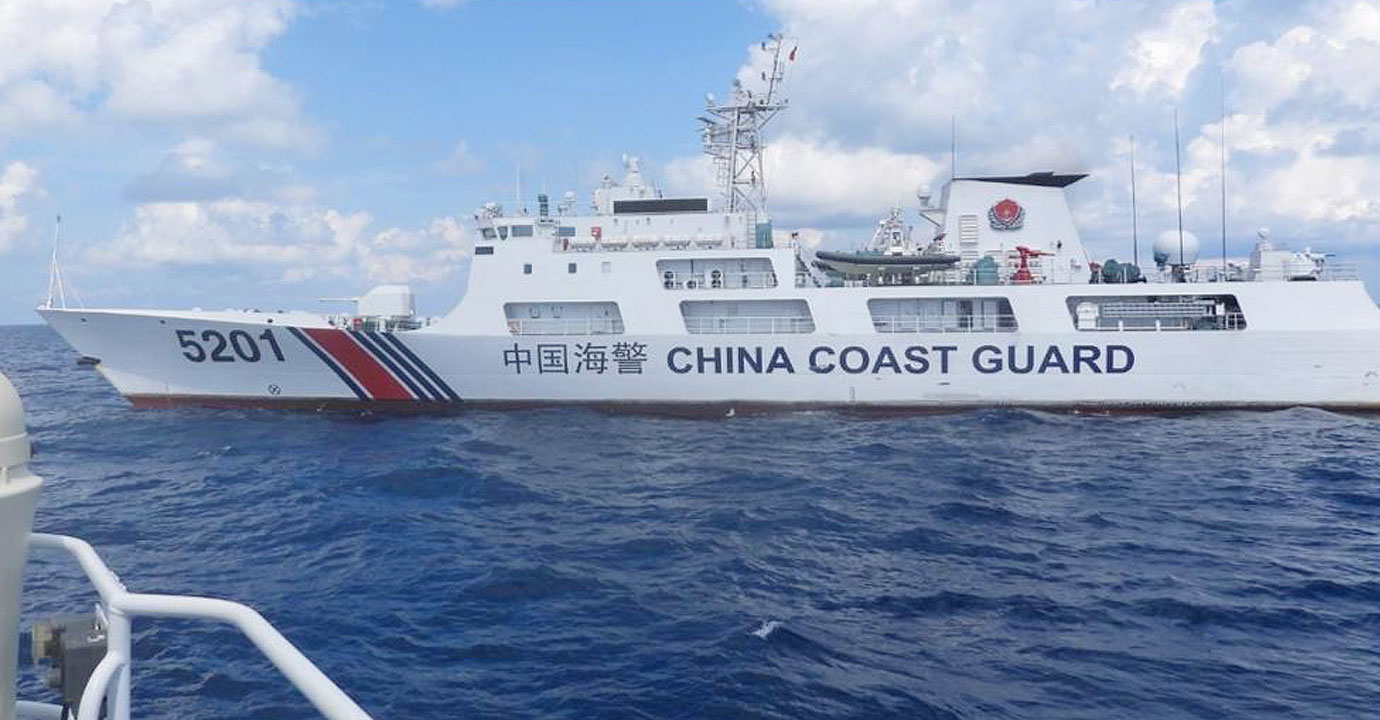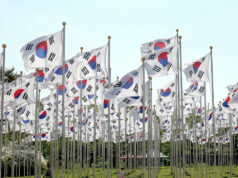Philippines accuses China of blocking, firing water cannon at resupply ship

By Kyle Aristophere T. Atienza and Beatriz Marie D. Cruz, Reporters
The Chinese coast guard’s “dangerous maneuvers” prevented a second boat from unloading the supplies and completing the mission, the Philippine military said.
The Chinese Embassy in Manila did not immediately respond to a request for comment.
China claims sovereignty over more than 80% of the South China Sea, an assertion rejected internationally, while Malaysia, Vietnam, Brunei, Taiwan and the Philippines have claims to certain areas.
China often irks its neighbors with maritime actions they call aggressive and with longer-term activities like building islands on reefs and equipping them with missiles and runways.
“We call on the China Coast Guard and the Central Military Commission to act with prudence and be responsible in their actions to prevent miscalculations and accidents that will endanger peoples’ lives,” the Armed Forces said.
The Philippine Coast Guard said the Chinese actions violated laws including two international conventions and a ruling from a global tribunal.
The Permanent Court of Arbitration in the Hague in 2016 voided China’s expansive claim to the South China Sea. China has ignored the ruling.
The Philippine Coast Guard “calls on the China Coast Guard to restrain its forces, respect the sovereign rights of the Philippines in its exclusive economic zone and continental shelf, refrain from hampering freedom of navigation and take appropriate actions against the individuals involved in this unlawful incident,” its spokesman Commodore Jay Tarriela said.
After the incident, the US State Department said China’s “repeated threats to the status quo in the South China Sea (were) directly threatening regional peace and stability” and that Washington stands with its Philippine allies in the face of such “dangerous actions.”
“The United States reaffirms an armed attack on Philippine public vessels, aircraft, and armed forces — including those of its coast guard in the South China Sea — would invoke US mutual defense commitments under Article IV of the 1951 US Philippines Mutual Defense Treaty,” it said in a statement.
The German Embassy in Manila said it was concerned about the use of water cannons by Chinese Coast Guard vessels against a lawful Filipino resupply mission within the Philippine’s own exclusive economic zone.
“We urge all parties to respect the rules-based international maritime order (UNCLOS and Convention on the International Regulations for Preventing Collisions at Sea), with the 2016 arbitral award at its center,” it said in a statement. “In light of recent events, Germany stresses that disputes must be resolved peacefully not by force or coercion.”
Beijing has “dramatically increased” its presence in Second Thomas Shoal in the past month, sending as many as four coast guard vessels and 32 maritime militia ships, said Raymond M. Powell, a fellow at the Stanford University’s Gordian Knot Center for National Security Innovation.
“While most of this armada remained around their nearby Mischief Reef base during the actual resupply mission, they did deploy out of the port as a demonstration of their capacity to completely swarm the mission if they chose to do so,” he said in an e-mail.
‘MIGHT VS RIGHT’
China has engaged in such an “escalatory cycle” in the belief that the government of President Ferdinand R. Marcos, Jr. would eventually back down, he said. “But the effect thus far has been the opposite.”
Instead, the Philippines has gained substantial international support for its position and expanding security ties with the US and other like-minded countries such as Japan, Australia, the European Union and even India, he said.
Australia is also concerned by the Chinese Coast Guard’s latest actions directed against the Philippines Coast Guard, “which are dangerous and destabilizing,” Australian Ambassador to the Philippines Hae Kyong Yu tweeted.
“We reiterate our call for peace, stability and respect for UNCLOS in the South China Sea — a vital international waterway,” she said.
China’s actions were “totally unacceptable,” infringing on “lawful activities of the sea and endanger the navigational safety,” Japanese Ambassador to the Philippines Koshikawa Kazuhiko tweeted separately.
“The question is whether China will continue to double down on this coercive strategy, or will it recognize its failure so far to subdue Manila and change its approach?” Mr. Powell said.
China’s firing of water cannons defeated the Philippine Coast Guard’s conscious use of “chartered boats” in its resupply missions, which are “humanitarian” in nature, Chester B. Cabalza, founder of the Manila-based International Development and Security Cooperation, said in a Facebook Messenger chat.
“This only shows China’s disrespect for our maritime entitlements and obvious show of force in their gray zone strategy,” he added.
“This is yet again a manifestation of its ‘might vs right’ treatment of its peaceful neighbors,” Senate President Juan Miguel “Migz” F. Zubiri told reporters via Viber. “By its actions, it shows diplomatic duplicity, of preaching about amity, but practicing hostile behavior. We want to make friends but why is it difficult to love you, China?”
Senator Ana Theresia “Risa” N. Hontiveros-Baraquel said the Chinese Coast Guard does not have the right to block, let alone fire a water cannon on Philippine supply vessels. “They have no right to leave Filipinos in Ayungin Shoal starving.”
The Philippine Senate last week adopted a resolution urging the Department of Foreign Affairs (DFA) to file a resolution before the UN General Assembly calling on China to stop harassing Philippine vessels and violating Philippine rights at sea.
The resolution also called on DFA to bring to international attention China’s harassment of Filipino fishermen in the South China Sea and its refusal to follow the Hague ruling and UNCLOS.
In his second address to Congress last month, Mr. Marcos Jr. touted his foreign policy — “a friend to all and enemy of none” — that he said has proven effective.
He said the government would continue to forge more international partnerships “that will lead to a more balanced trade strategy and a healthier economic position.”
China is the Philippines’ largest trade partner, with total trade hitting $3.01 billion in April, according to the local statistics agency. Philippine exports to China reached $772.47 million, while imports hit $2.26 billion.
Security analysts have said boosting trade with China would unlikely temper its expansive activities in the South China Sea.
Ex-President Rodrigo R. Duterte, who met with Chinese President Xi Jinping last month in Beijing, had a meeting with Mr. Marcos at the presidential palace last week to inform him about his China visit.
“His silence in the past six years, and even until the present, continue to compromise our arbitral victory,” Victor Andres C. Manhit, president of think tank Stratbase ADR, said via Messenger chat. “He should respect the mandate of the current administration, and the national interests, and move on from engaging with antagonistic and coercive states.”
Tensions between the two countries were heightened after a Chinese Coast Guard vessel used a military-grade laser against its Philippine counterpart near Second Thomas Shoal in mid-February.
In late April, a Chinese coast guard ship blocked a Philippine patrol vessel carrying journalists, causing a near-collision that gained international backlash. — with Reuters



